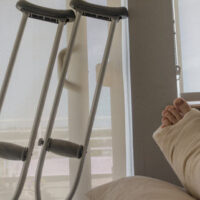When is an Injury Considered Catastrophic?

Even injuries that seem relatively minor can have a significant impact on a person’s life. For instance, a broken bone can cause pain for weeks or even months after an accident, while also leaving the injured party unable to perform certain daily tasks or fulfill his or her job duties. Catastrophic injuries, however, tend to have more devastating consequences for victims who could suffer permanent disability as a result. For help holding the person who caused your own catastrophic injury accountable for his or her actions, please contact one of our experienced Fort Lauderdale catastrophic injury attorneys today.
Defining Catastrophic Injuries
Defining what qualifies as a catastrophic injury can be difficult. However, most agree that the primary distinguishing characteristic of this type of injury is the severity and permanency of the injury’s consequences. For instance, if an injury permanently prevents a person from securing gainful employment, he or she will most likely be considered to have suffered a catastrophic injury. In most cases, injuries of this severity affect the spine or brain in some way, although these are by no means the only types of injuries that qualify as catastrophic. Serious burns, for example, as well as disfigurement, organ damage, and the loss of a limb all fall under the definition of a catastrophic injury, as they tend to cause impairment of a permanent and debilitating nature.
Recovering Compensation
Identifying an injury as catastrophic is important to the claims filing process, as these types of injuries cause unique concerns and setbacks for victims and their families. For instance, those suffering from catastrophic injuries usually require extensive medical intervention, which can include multiple invasive procedures, even after which, a person could still require medical care on a long-term basis, or suffer from permanent impairment. These individuals are also often unable to return to work and may be forced to pay for medical bills without the assistance of a steady income or benefits. Families of victims may also suffer as a result of their loved one’s injuries, not only emotionally, but also financially, especially if a relative is required to care for the injured party on a full time basis.
Basically, the potential for substantial damages is overwhelming for accident victims who suffer from catastrophic injuries. Recovering compensation from the at-fault party who caused the injury is often the only way that injured parties can stay financially afloat. Potential damages include compensation for:
- Medical treatment;
- Long-term medical needs, including medical devices, medications, and nursing assistance;
- Lost income resulting from temporary disability;
- Lost future wages caused by a reduced earning capacity; and
- Property damage.
In addition to economic damages, catastrophic injury victims and their families are also more likely to sustain non-economic damages, such as devastating physical pain and suffering, mental anguish, and emotional distress.
Contact Our Catastrophic Injury Legal Team Today
If your loved one suffered a catastrophic injury as a result of another person’s negligence, please call 954-566-9919 today to speak with one of the dedicated Fort Lauderdale catastrophic injury attorneys at Boone & Davis about your legal options.
Resource:
leg.state.fl.us/Statutes/index.cfm?App_mode=Display_Statute&URL=0700-0799/0766/Sections/0766.118.html
